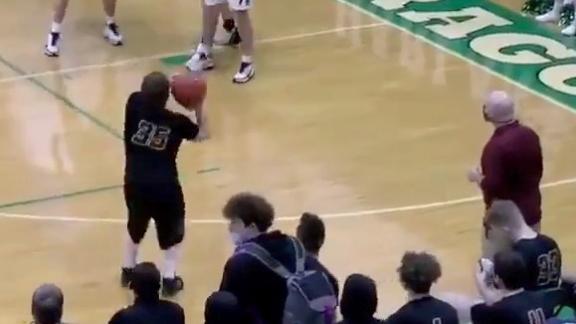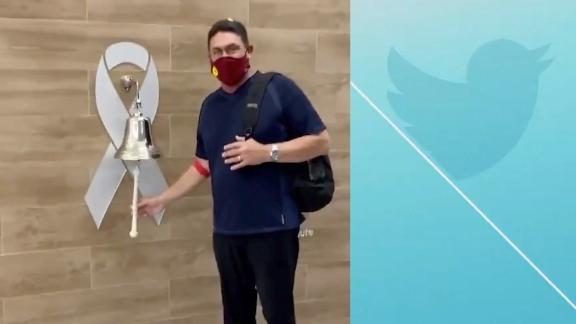I met 27-year-old Mike Wohl at the MIT Sloan Sports Analytics Conference in March. He was the MBA graduate student coordinator for the panel I was on about the world of sports betting today. This was my second year appearing at the conference, and meeting the student liaisons is one of the highlights.
They are the perfect combination of obsequious without being Eddie Haskell-like (as if they aren't scrambling on their Internet machines to figure out who that is) and slightly arrogant without asking to be punched. They know they're brilliant, definitely smarter than the panelists they have to cater to, and they know they'll probably retire, counting their collection of Caribbean Islands and commuting via private jet to adjunct positions at Sloan, before they hit puberty.
Mostly though, they are fierce, in the best possible way. Both years, my pre-panel prep included an inbox full of emails outlining topics to be addressed by the moderator, areas each panelist should concentrate on and how we would be introduced. Thrown in are a couple of conference calls and follow-up memos outlining what was discussed on the calls. These people are no joke.
What's fun about doing the sports gambling panel is that the audience members, as well as the hosts I've met, are hard-core gambling fans. The SSAC has a lot of star power -- Jeff Van Gundy, Mark Cuban, Bill Simmons -- but the gambling enthusiasts do not come for the panelists; they come for the info. Most folks sitting out there, especially the students, probably have an iPad stuffed in their backpack that contains the next great system for betting on sports.
It's at places like Sloan, and all the other brainiac grad institutions, where the real revolution in sports wagering is taking place. I often talk about the middle ground that exists between the sharps who do this for a living and the squares who can't. That gray area is where the finance guys in their 30s and 40s who know enough about scouring the Internet to be dangerous are lingering.
It's people like Richard Stand, who won the Las Vegas Hilton SuperContest a couple of years ago but moonlights as a high-ranking financial officer of a public company. The current crop of MBAs are version 2.0 of these quantitative analysts, and they will be able to take advantage of new laws legalizing sports betting in the next few years.
Wohl is one of those guys. Late last spring, he sent me his Sloan independent study called "The Missing Asset Class." I didn't know what that title meant either, but essentially he wrote about how to examine various sports bets in different ways, through the same prism of opportunity and analysis that Wall Streeters view stocks. Of course, I am very busy because I write this blog, do a podcast and am the editor-in-chief of an oversized magazine. I cannot be bothered to respond to such emails. So Wohl emailed me again a few weeks later and, essentially, said, "WTF, dude. No time for me?" Clearly he had dropped the Eddie Haskell routine. I felt like an ass and read the paper.
It was very good.




